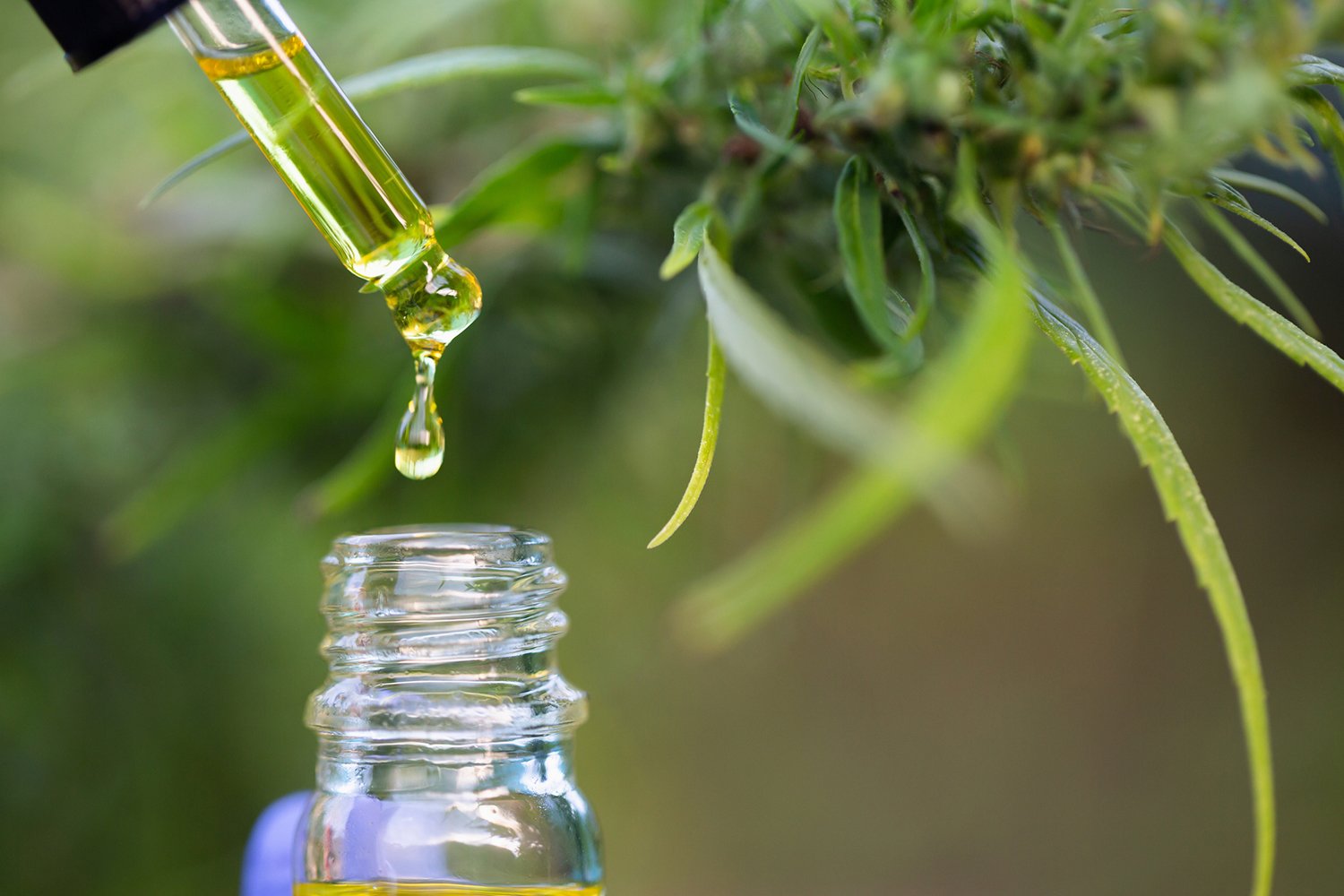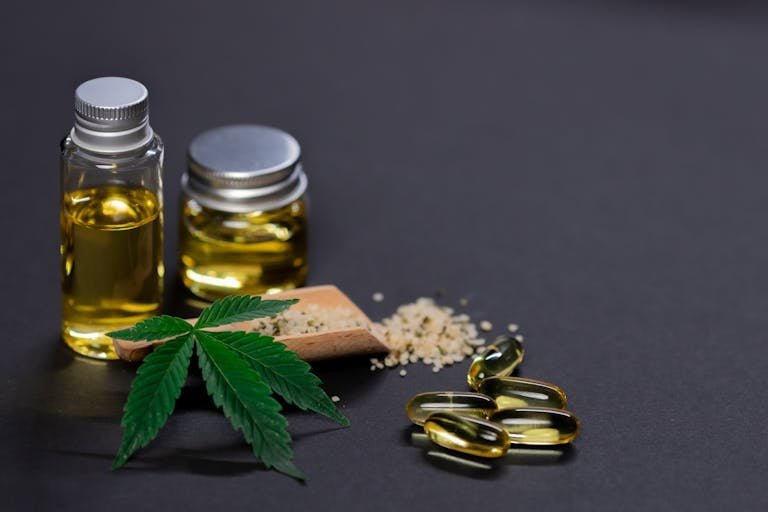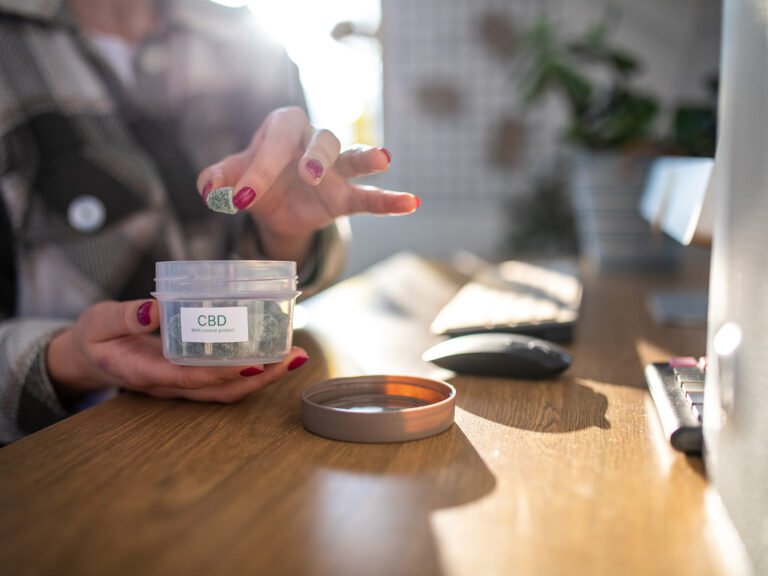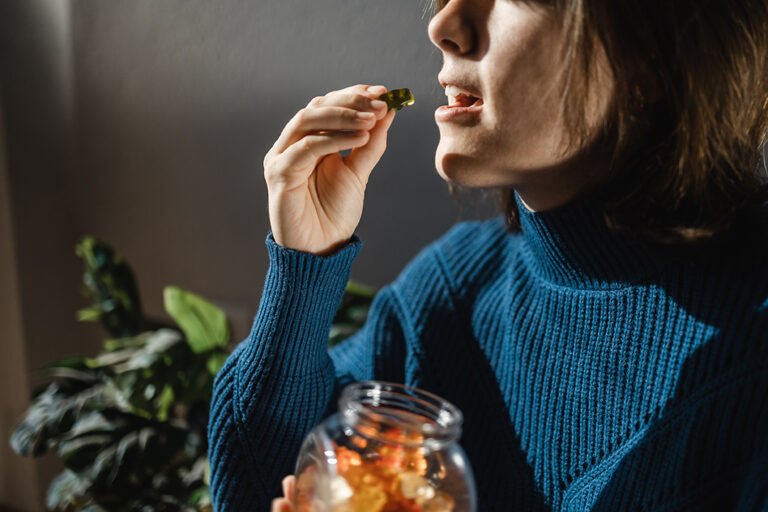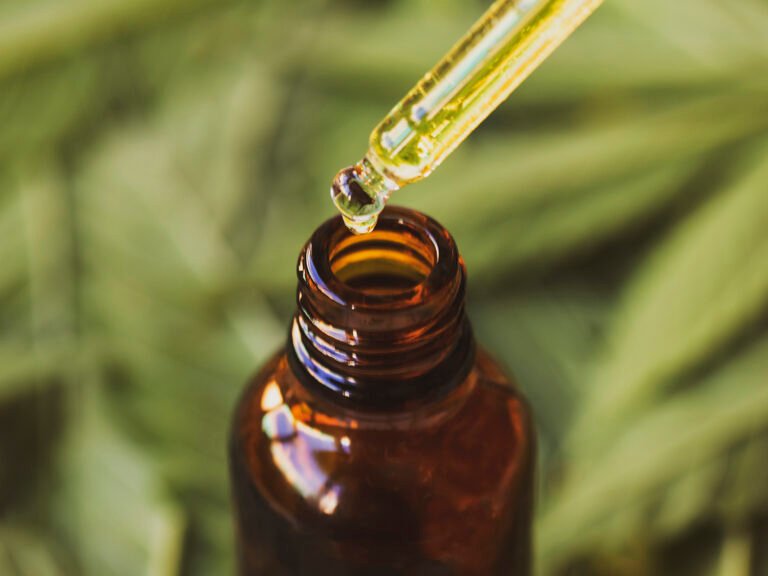CBD vs. THC – Understanding the Differences
If you’ve dipped a toe into the world of cannabis, chances are you’ve found yourself wading through a sea of terms—especially in the CBD vs. THC debate. They’re like the yin and yang of the cannabis plant—they’re two sides of the same coin, balancing each other out while bringing their unique traits to the table. While they hail from the same plant family, they play very different roles, like the sweet and savory options on a dinner menu. One calms and relaxes (hello, CBD), while the other is more of a life-of-the-party type, delivering the high that THC is famous for.
Whether you’re trying to decide between CBD for your post-workout wind-down or THC for an occasional boost in creativity, this post will help you understand their differences, effects, legal status, and more. By the end, you’ll be able to impress your friends by dropping words like “endocannabinoid system” at brunch.
So, grab a cup of coffee (or tea, we don’t judge), and let’s break this down.
CBD vs. THC 101 – A Quick Introduction
CBD (cannabidiol) and THC (tetrahydrocannabinol) both come from cannabis plants. Think of them as siblings with very different personalities. While both are cannabinoids—a fancy name for active compounds in cannabis—CBD is often celebrated for its calming, therapeutic effects. In contrast, THC is the life of the party, known for its psychoactive “high.”
CBD is extracted from both hemp and marijuana plants, but it’s more prevalent in hemp (you know, that super chill cousin of marijuana). THC, on the other hand, takes the spotlight in marijuana.
Both CBD and THC are derived from the same plant species, Cannabis sativa, but the specific plant (hemp or marijuana) determines the levels of these compounds. Hemp plants typically contain more CBD and less THC, while marijuana plants flip that dynamic.
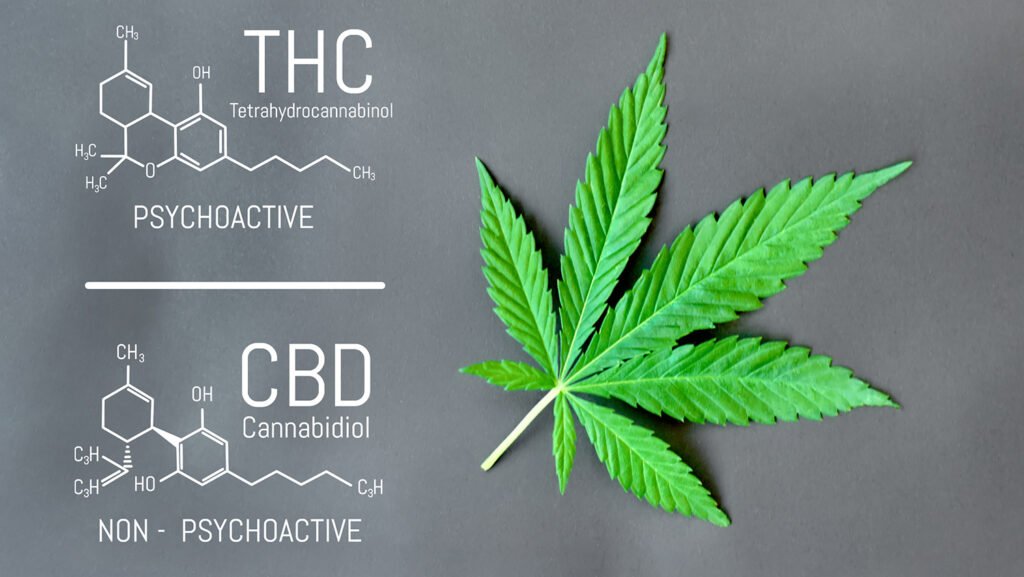
The Science Bit – Chemical Structure
Here’s where we zoom in with a molecular microscope (metaphorically). CBD vs. THC share the same chemical formula (C21H30O2), but the atoms are arranged slightly differently. It’s like the difference between identical twins whose hairstyles set them apart.
This tiny structural variance causes immense changes in how they interact with your body, particularly the endocannabinoid system (ECS), which we’ll explore next.
Effects on Your Body – How Does CBD vs. THC Work?
The endocannabinoid system (ECS) is like your body’s internal Wi-Fi network. It regulates essential functions like mood, sleep, and pain. When cannabinoids like CBD and THC interact with ECS receptors, it’s like boosting the signal strength.
- THC locks onto ECS receptors called CB1 (mainly in your brain), creating psychoactive effects—a.k.a. the high.
- CBD, however, takes a more indirect approach, supporting ECS function without affecting your mental clarity. You could say it’s more of a helpful sidekick than a headliner.
Mind Matter – Psychological Effects
This is where CBD and THC draw a hard line.
- THC is your “thinking outside the box” buddy. It enhances creativity, alters perception, and even boosts your appetite (munchies, anyone), but it can also cause anxiety in higher doses.
- CBD, on the other hand, helps you put that box down and relax. It’s known for reducing anxiety, promoting focus, and helping sleep. There’s no psychoactive shenanigans here.
Pro tip: If THC feels overwhelming, CBD can sometimes help balance those effects.
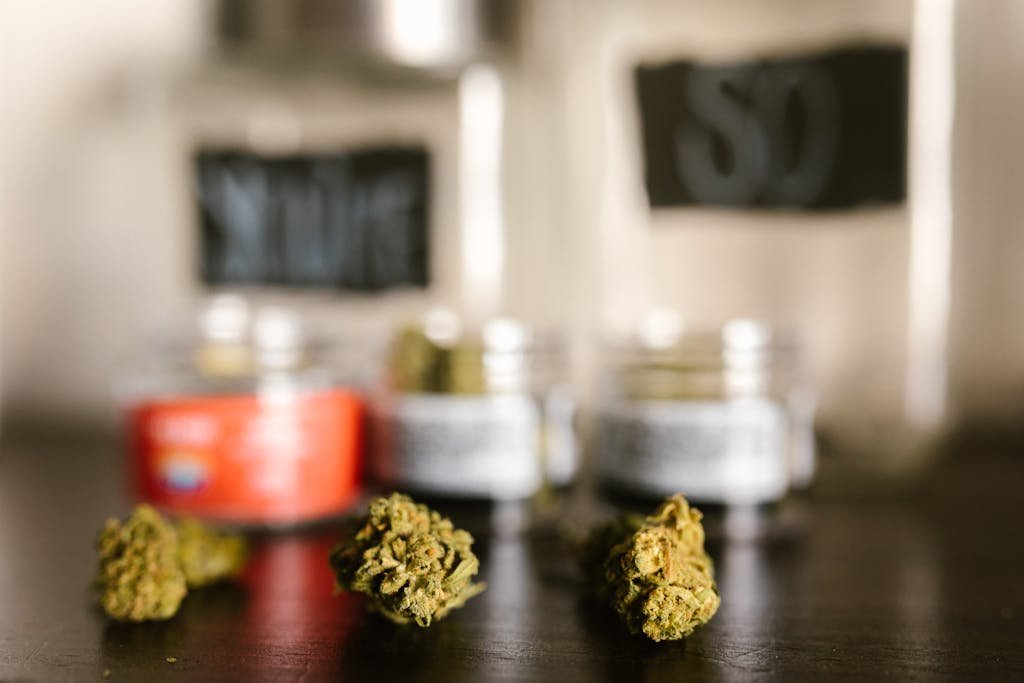
Legal Status – What’s Allowed Where?
Imagine attending a party—and the bouncer has different rules for every guest. That’s the legal status of CBD and THC across the globe.
- CBD enjoys a more welcoming reception thanks to its non-psychoactive nature. It’s federally legal in the U.S. (under the 2018 Farm Bill) if derived from hemp and contains less than 0.3% THC.
- THC, however, is the polarizing guest. Its legal status varies by location. Recreational marijuana (high in THC) is legal in states like California and Colorado, but in others, it’s strictly medicinal or outright illegal.
Always check your local laws to avoid running afoul of the rules.
CBD vs. THC Benefits & Uses – What’s in it for You?
Here’s a closer look at how each compound can benefit your life.
CBD Benefits
- Pain management – Ideal for sore muscles, chronic pain, or migraines.
- Anxiety relief – Goodbye, nervous energy.
- Improved sleep – No more tossing and turning.
- Skin health – Thanks to its anti-inflammatory properties, it’s a key ingredient in many skincare products.
THC Benefits
- Pain relief – Particularly effective for severe pain, like what’s experienced during cancer treatments.
- Appetite stimulation – THC is renowned for aiding those with eating disorders or appetite loss.
- Relaxation and euphoria – This one’s a mood booster.
- Nausea reduction – Often used by chemotherapy patients.
Fun fact: Many products combine CBD and THC for a synergistic effect. This is called the “entourage effect,” where the two compounds enhance each other’s benefits.
A Word of Caution – Potential Risks
While both CBD and THC offer several benefits, they’re not always sunshine and rainbows.
- CBD risks are mild and may include drowsiness or dry mouth if taken in high doses.
- THC risks mainly involve its psychoactive effects—like paranoia, impaired motor skills, or memory issues when overconsumed.
Always consult a healthcare professional, especially if you’re on other medications.
Key Takeaways – Which One is Right for You?
When it comes to CBD vs. THC, there’s no universal answer—it’s all about your personal goals and comfort level.
- For relaxation, sleep, and stress relief, go with CBD.
- For pain relief, nausea, or an occasional creative boost, THC might be your match.
Still not sure where to begin? Explore a combination that offers the best of both worlds while staying within your comfort zone.
Disclaimer: This article is for informational purposes only and should not be considered medical advice. Always consult with a healthcare professional before starting any new supplement or treatment.

